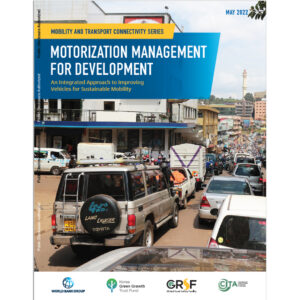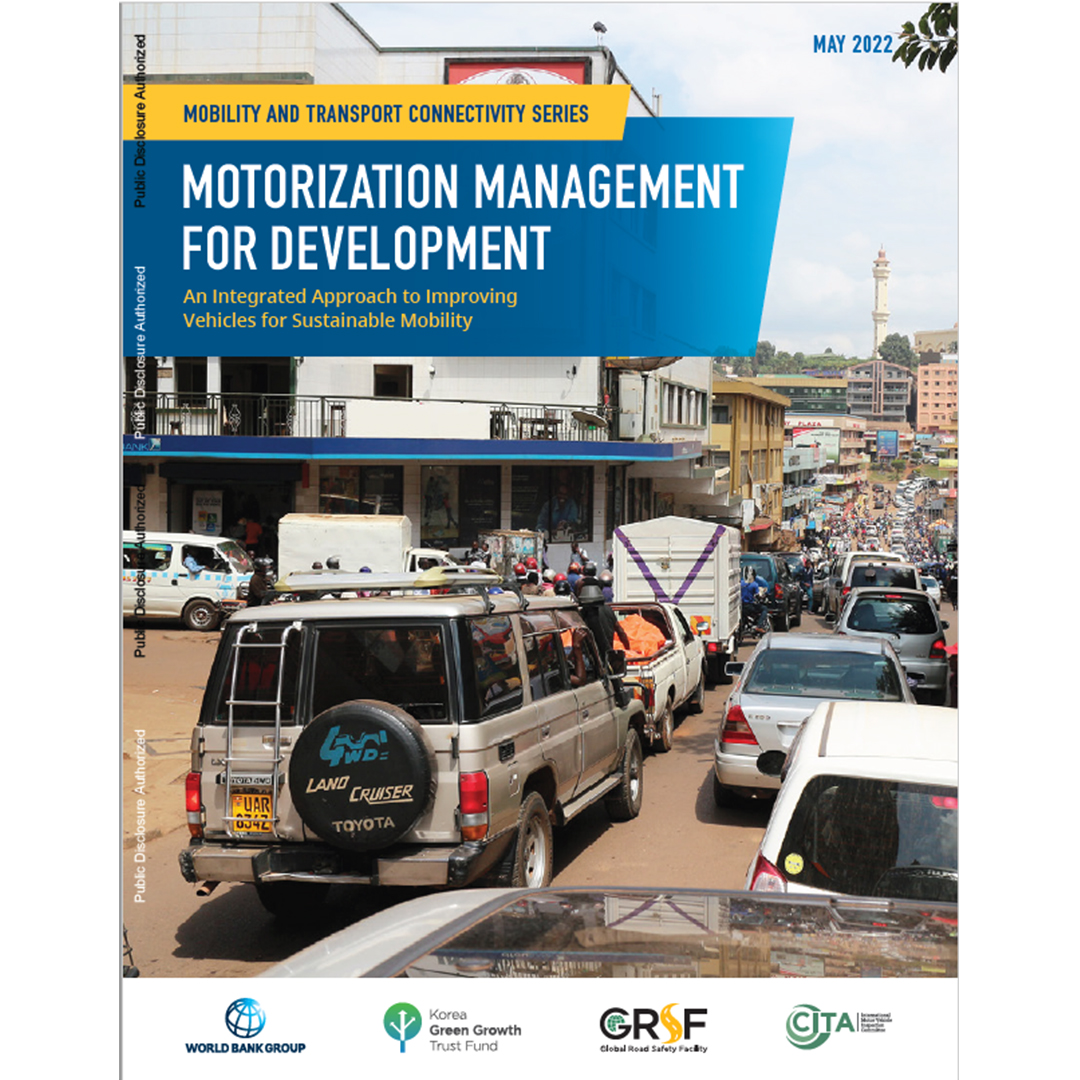Motorization Management for Development Report
 This new report entitled “Motorization Management for Development : An Integrated Approach to Improving Vehicles for Sustainable Mobility“, co-funded by CITA, presents the World Bank’s Motorization Management (MM) framework, which is intended to support client countries in the development of policies and measures aimed at managing vehicle stocks in a proactive, phased, and systematic manner to make them safer, cleaner, and more fuel efficient. The MM framework reflects a series of policy considerations and programs that can be implemented to improve the quality of fuels and vehicles in a country’s stock.
This new report entitled “Motorization Management for Development : An Integrated Approach to Improving Vehicles for Sustainable Mobility“, co-funded by CITA, presents the World Bank’s Motorization Management (MM) framework, which is intended to support client countries in the development of policies and measures aimed at managing vehicle stocks in a proactive, phased, and systematic manner to make them safer, cleaner, and more fuel efficient. The MM framework reflects a series of policy considerations and programs that can be implemented to improve the quality of fuels and vehicles in a country’s stock.
Across the developing world, countries are experiencing rapid growth in urbanization and motorization. While high motorization rates potentially meant hat more people will be able to claim the benefits of improved accessibility to goods and services as a consequence of enhanced mobility, there are questions about the sustainability of this future.
First, the quality of the motor vehicle stock affects road safety outcomes—that is, the number of people killed or seriously injured in motor vehicle crashes. Second, the quality of the motor vehicle fleet affects air quality, particularly in cities. Finally, the profile of the vehicle fleet.
CITA gave its support to advance these important areas of work for both road safety and transport decarbonization goals.

